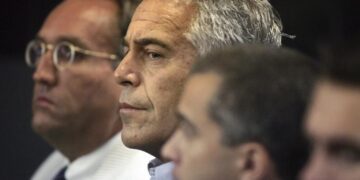Northern Illinois University to get $26 million in emergency funding
SPRINGFIELD – Springfield lawmakers from both sides of the aisle agreed to a provision for budget-devastated higher education Friday, and Governor Rauner reacted positively in a statement issued from his office, conveying hope the cooperative mood would develop.
“By passing this bipartisan agreement, lawmakers in both chambers put aside political differences to provide emergency assistance for higher education, ensuring universities and community colleges remain open and low-income students can pay for school," said Governor Rauner's press secretary Catherine Kelly. "We are hopeful the General Assembly will build on this bipartisan momentum in the weeks ahead as we negotiate a balanced budget with reform for Fiscal Years 2016 and 2017.”
Republican state lawmakers agreed with the governor.
“After a ten month stalemate and a week of game-playing by the Speaker, today we saw a ray of hope. Sincere, bi-partisan efforts by rank-and-file members have yielded an agreement that will give universities, community colleges and our students that depend on MAP grants some breathing room," said State Rep. Grant Wehrli (R-Naperville) in a statement.
The $600 million provided in the emergency funding in SB 2059 will come from the Educational Assistance Fund. The money is in place, and the Governor has agreed to sign the allocation when it reaches his desk.
"This is proof that we can find solutions when we work together. Now, let’s get that spirit of bi-partisan cooperation working on a full year, responsible budget,” Wehrli said.
The measure passed the Illinois House 103 to 2, with Democrat Reps. Scott Drury and Jack Franks opposing.
Rep. Tom Demmer (R-Dixon) urged stopgap funding to remedy similar issues in Human Services as well.
“As a member of both the House Human Services Committee and the House Human Services-Appropriations Committee, I understand there are many similar challenges facing the human services safety net. We should take this momentum and next apply it to human services and a full budget solution,” said Rep. Demmer.
The stopgap higher education funding measure provides nearly $170 million in funding to MAP recipients, $74 million to community colleges, and $26 million to nearby Northern Illinois University.
“I appreciate that this stopgap funding measure was driven by rank-and-file members and I hope we can use this momentum to break through this impasse and begin to remedy the dire fiscal situations facing our state,” continued Demmer.
State Rep. Bob Pritchard (R-Sycamore) lauded that the measure used available revenue, not IOUs to fund the immediate needs of the state's colleges and universities.
"Unlike past bills, this legislation is fully funded, meaning schools will get the money they need in the next few weeks. I'm incredibly pleased that this deal was reached and our students can make decisions about their educational futures with greater confidence," Pritchard said.
He, too, hoped the same effort would be put into correcting the human services financial dilemma.
"However, a lot of work remains to be done. This bipartisan, compromise effort is a good start and should be the template moving forward to find solutions for our deteriorating human services and a full budget."
The Illinois Senate unanimously agreed to the changes made on SB 2059 in the House Friday, and sent the bill to the governor's desk.







